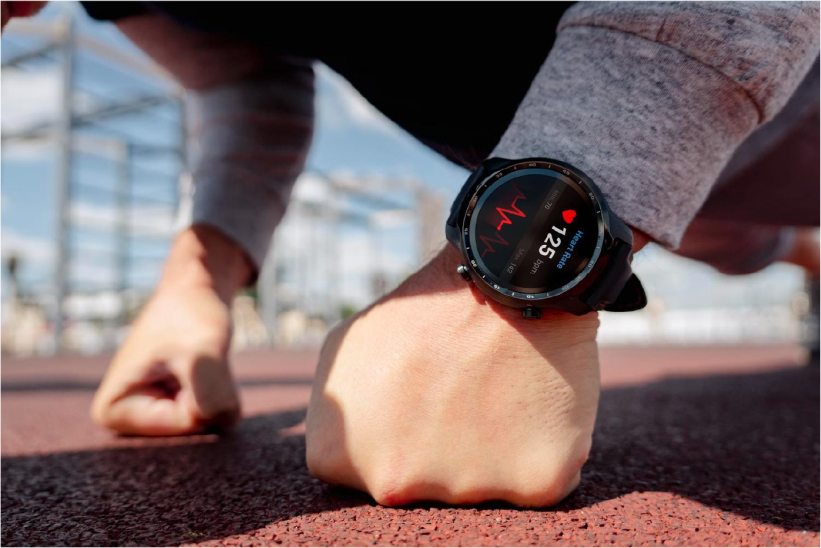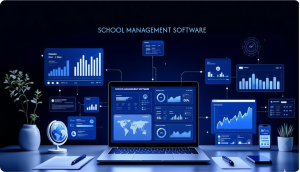![]()
Wearable technology has been integral to our daily lives over the past decade. From watches to rings, people have continually adopted new trends while the industry evolves to meet changing needs. According to experts, the usage of fitness trackers is expected to grow significantly, with an estimated increase of 87.2 million users by 2028, reflecting a 33% growth.
Utilizing their potential is essential to exploiting the benefits of these wearables. The primary purpose of fitness trackers and wearables is to monitor individuals’ health and fitness, which implies the importance of integrating them with efficient fitness-tracking applications.
What are Wearables
Wearables are electronic devices worn on the body that gather vital health data like step count, heart rate, sleep patterns, and blood pressure, promoting healthier lifestyles. Over the years, wearable technology has evolved significantly, and many wearable devices have emerged, rendering even the smartwatches occasionally outdated.
While some wearables focus on activity tracking and fitness monitoring, others are designed for specific health metrics such as heart rate monitoring or blood glucose tracking. Certain fitness trackers excel at monitoring steps taken and calories burned, whereas smartwatches offer more comprehensive functionalities such as notifications, GPS tracking, and mobile payments. Additionally, specialized wearables like ECG and continuous glucose monitors (CGMs) serve specific medical purposes, providing valuable insights into heart health and blood sugar levels.
Improving convenience and experience, smart rings are the next hot trend in the wearables market, offering discreet functionality. With features like activity tracking, notifications, contactless payments, and health monitoring, smart rings provide users with a seamless and stylish way to stay connected and informed throughout their day.
Utilizing Information from Wearables
Wearables are essential for fitness enthusiasts, offering insights into steps, calories, and activity to monitor progress. Sleep monitoring enhances understanding and optimization of overall sleep quality.
Healthcare providers utilize wearable data to monitor chronic conditions, detecting early signs in patients with diabetes, heart disease, etc. Remote monitoring enables timely intervention for at-home recovery, while insights into daily health fluctuations aid in crafting personalized treatment plans for optimal patient care.
Wearable data can be leveraged to provide policyholders with customized benefits. By analyzing these health metrics, insurers can tailor insurance plans to incentivize and reward healthier lifestyle choices. Individuals demonstrating healthy habits through wearable data, such as regular exercise, may, in some cases, qualify for reduced insurance premiums.
Athletes leverage healthcare data from wearables, tracking metrics like heart rate zones and recovery times for optimized training. This data aids in preventing injuries by identifying potential risks.
Integration of Wearables with Fitness Tracker App
With fitness tracker apps, monitoring someone’s health becomes effortless, and every detail is thoughtfully captured. This historical data aids in evaluating health trends over time, providing consistent insights. It offers a holistic view of the evolution of health and lifestyle, particularly before and after alterations in routine, medications, or lifestyle choices.
Our experts noted an impressive 80% enhancement in users’ health metrics and vitals within just one month of inception. When comparing results among users with specific health conditions and considering vitals before and after lifestyle changes, they observed a remarkable improvement in about 56% of cases within the same month.
This integration allows for in-depth analysis, enabling accurate predictions within the fitness tracker app. Consider a user who tracks exercise, diet, and sleep using a fitness tracker app integrated with wearable data. They can identify trends, such as declining sleep quality and increased stress, prompting alerts about potential health issues. This prompts the user to adjust their lifestyle to mitigate risks.
Also, this approach ensures precise and tailored guidance for users, making health management efficient and engaging.
Need for Integration

Patient Movement Tracking
Tracking patient movement within healthcare facilities is quite challenging. But, with wearables, you can track real-time location, which ensures efficient monitoring and optimized care delivery. This is extremely useful for rehabilitation centers, mental health facilities, and even home care settings.
Doctor Location Tracking
Keeping precise tabs on the location of doctors in healthcare settings is possible with wearables, and this continuous tracking ensures seamless communication and timely healthcare interventions.

Guiding Patients During Health Checkups
Ensuring patients undergo every test during a comprehensive health checkup can be simplified with wearables. They could guide patients through the checkup, minimizing the risk of missing tests and enhancing the accuracy of medical assessments.

Corporate Health and Wellness Programs
Encouraging and monitoring employee participation in health and wellness programs poses challenges. However, wearables transform this by tracking and promoting healthy habits, they foster a healthier, more productive workforce.

Elderly Care
Wearables provide continuous monitoring, alert caregivers in emergencies, and promote independence, thus ensuring the well-being of elderly individuals.

Physical Rehabilitation
Monitoring and guiding patients during physical rehabilitation exercises by tracking movements and ensuring patients adhere to prescribed exercises is a cakewalk with wearables, facilitating remote rehabilitation.

Sports Training
Wearables provide real-time data on performance, helping athletes optimize training routines, prevent injuries, and improve overall athletic performance. This ensures effective and safe sports training with personalized feedback.

Medication Adherence
Wearables can send medication reminders, track dosage times, and provide alerts, overseeing patients adhering to prescribed medication schedules and improving medication adherence.

Fall Detection for Seniors
Wearables with fall detection capabilities alert caregivers or emergency services in case of a fall, ensuring prompt assistance. This is highly useful in assisting the elderly, especially in remote care.
Wearables and healthcare tracking apps are pivotal in creating a connected healthcare ecosystem.
- They facilitate continuous health monitoring and personalized treatment plans, enabling informed decisions for optimal patient care.
- They enable remote health tracking, providing real-time insights to individuals and healthcare providers, fostering personalized care, and minimizing the need for physical visits.
- Wearables in early warning systems offer continuous health monitoring, triggering timely alerts for proactive interventions, ensuring individual safety, and minimizing health risks.
Fitness Tracking Applications and Predictive Analysis
The future of wearable technology is marked by a transformative integration of AI and ML, leveraging predictive analytics to foresee clinical outcomes. These advancements harness the power of sophisticated algorithms, analyzing vast datasets from wearables to anticipate health trajectories. This not only enhances personalized treatment plans but also enables proactive healthcare management. Eventually, predictive analytics can revolutionize medical interventions, paving the way for a more precise and tailored approach to individual health and well-being.
While wearables inform users of their vitals and health data in real-time, tracking and analyzing this data is essential. Users can improve their lifestyle and health dramatically by making data-driven decisions through integration with fitness-tracking apps. Are you looking to integrate a wearable and a fitness-tracking app? Contact us and we can help you with the right solution for your needs.



